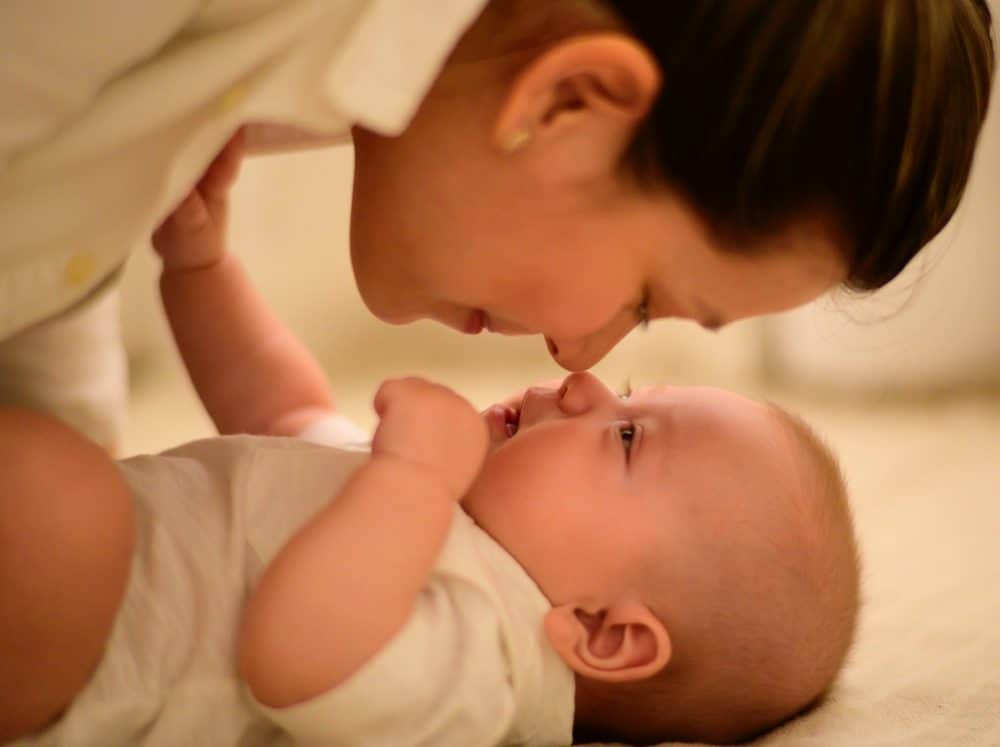

Unit 03 :
Birth, Life, and Death
生命相關






Vocabulary
Let’s learn about different kinds of Birth, Life, and Death.
Part 1
1. pregnant /ˈpreɡ.nənt/
(adj.) 懷孕的,妊娠的
(of a woman and some female animals) having a baby or babies developing inside the womb
She’s five and a half months pregnant.
她懷孕有五個半月了。
2. birth /bɝːθ/
(n.)出生
the time when a baby or young animal comes out of its mother’s body
More men are present at the births of their children these days.
現在很多父親在孩子出生時也在場。
3. breast milk /ˈbrest ˌmɪlk/
(n.)母乳
milk produced by a woman’s body to feed her baby very attractive
4. diaper /ˈdaɪ.pɚ/
(n.)尿布
a square of thick soft paper or cloth that is fastened around a baby’s bottom and between its legs to absorb its urine and solid waste
She was changing the baby’s diaper.
她正爲嬰兒換尿布。
5. baptism /ˈbæp.tɪ.zəm/
(n.)(基督教的)洗禮,浸禮
a Christian ceremony in which a person has water poured on their head, in order to show that that person has become a member of the Christian Church
infant baptism
嬰兒洗禮
6. pram /præm/
(n.) 手推童車,嬰兒車
a vehicle for moving a baby around that consists of a small bed supported by a frame on four wheels
I saw her pushing a pram down the street.
我看見她推著嬰兒車沿著街道走。
7. toddler /ˈtɑːd.lɚ/
(n.) (尤指處於學步期或剛學會走路的)幼童
a young child, especially one who is learning or has recently learned to walk
8. preschooler /ˈpriːˌskuː.lɚ/
(n.) 學齡前兒童
a child who is not old enough to go to formal school
9. teenager /ˈtiːnˌeɪ.dʒɚ/
(n.)( 13歲至19歲的)青少年
a young person between 13 and 19 years old
The magazine is aimed at teenagers and young adults.
這份雜誌的讀者對像是青少年和二十來歲的年輕人。
10. adult/ˈæd.ʌlt/
(n.) 成年人;成年動物
a person or animal that has grown to full size and strength
Adults pay an admission charge but children get in free.
成年人買票入內,兒童免費。
Exercise 1
Use the vocabulary you’ve learned to describe these pictures.



Part 2
11. graduate /ˈɡrædʒ.u.ət/
(v.)取得學士學位,大學畢業
to complete a first university degree successfully
(n.)大學畢業生,學士學位獲得者
a person who has a first degree from a university or college
Tom has just graduated with first-class honors in psychology.
湯姆剛剛大學畢業,獲得心理學一級榮譽學位。
12. work /wɝːk/
(n.)工作;勞動
an activity, such as a job, that a person uses physical or mental effort to do, usually for money
(v.)使)工作;(使)勞動
to do a job, especially the job you do to earn money, or to make someone do a job
She worked as a cleaner at the hospital.
她在醫院裡當清潔工人。
13. marriage /ˈmer.ɪdʒ/
(n.)婚姻;結婚
a legally accepted relationship between two people in which they live together, or the official ceremony that results in this
They had a long and happy marriage.
他們的婚姻長久而幸福。
14. housewife /ˈhaʊs.waɪf/
(n.)家庭主婦
a woman whose work is inside the home, doing the cleaning, cooking, etc., and who usually does not have any other job
15. house husband /ˈhaʊs ˌhʌz.bənd/
(n.)家庭主夫
a man who stays at home and cleans the house, takes care of the children, etc. while his partner goes out to work
16. retire /rɪˈtaɪr/
(v.)退休;退職
to leave your job or stop working because of old age or ill health
Since retiring from the company, she has done voluntary work for a charity.
從公司退休後,她就一直在為一間慈善機構做志願工作。
17. pensioner /ˈpen.ʃən.ɚ/
(n.)領養老金者,退休人員
a person who receives a pension, especially the government pension given to old people
Students and pensioners are entitled to a discount.
學生和退休人士可享有折扣。
18. widow /ˈwɪd.oʊ/
(n.)寡婦,遺孀
a woman whose husband or wife has died and who has not married again
(v.)喪夫;喪妻
If someone has been widowed, their husband or wife has died
He was widowed at the age of 52.
他52歲時妻子去世。
19. divorce /dɪˈvɔːrs/
(n.)離婚
an official or legal process to end a marriage
(v.)(與…)離婚
to end your marriage by an official or legal process
Divorce is on the increase.
離婚呈上升趨勢。
20. engaged /ɪnˈɡeɪdʒd/
(adj.)已訂婚的
having formally agreed to marry
Debbie and Christa have just got engaged.
黛比和克力斯塔剛剛訂婚。
Exercise 2
Circle the word that has the same meaning.
1.to complete a first university degree successfully
study
graduate
teacher
2.a woman whose husband or wife has died and who has not married again
widow
housewife
wife
3.having formally agreed to marry
ceremony
engaged
marriage
Part 3
21. die /daɪ/
(v.)死去,死亡
to stop living or existing, either suddenly or slowly
Twelve people died in the accident.
十二個人在此次事故中喪生。
22. illness /ˈɪl.nəs/
(n.)(身體或精神上的)疾病
a disease of the body or mind
23. funeral /ˈfjuː.nɚ.əl/
(n.)葬禮,喪禮
a (usually religious) ceremony for burying or burning the body of a dead person
The funeral will be held next Friday.
葬禮將在下週五舉行。
24. burial /ˈber.i.əl/
(n.)埋葬;葬禮
the act of putting a dead body into the ground, or the ceremony connected with this
We went back to Ireland for my uncle’s burial.
我們回到愛爾蘭參加叔叔的葬禮。
25. grave /ɡreɪv/
(n.)墳墓,墓穴,埋葬處
a place in the ground where a dead person is buried
(adj.)嚴重的,重大的,嚴峻的
seriously bad
He visits his mother’s grave every Sunday.
他每個星期天都去母親墓前拜祭。
26. heir /er/
(n.)繼承人
a person who will legally receive money, property, or a title from another person, especially an older member of the same family, when that other person dies
Despite having a large family, they still had no son and heir.
儘管家庭成員眾多,他們仍然沒有兒子作為繼承人。
27. undertaker /ˈʌn.dɚˌteɪ.kɚ/
(n.)殯儀員;喪葬承辦人
a person whose job is to prepare dead bodies that are going to be buried or cremated (= burned) and to organize funerals
28. adopt /əˈdɑːpt/
(v.)收養;領養
to legally take another person’s child into your own family and take care of him or her as your own child
They have no children of their own, but they’re hoping to adopt.
他們沒有親生子女,但是希望能領養。
29. orphan /ˈɔːr.fən/
(n.)孤兒
a child whose parents are dead
(v.)使成為孤兒
to make someone an orphan
He was orphaned as a baby.
他尚在繈褓中時就成了孤兒。
30. orphanage /ˈɔːr.fən.ɪdʒ/
(n.)孤兒院
a home for children whose parents are dead or unable to care for them
Exercise 3
Discuss the questions with your tutor.

- How we can help orphans?
- What are the problems faced by orphans?
- What is the importance of orphanage?

